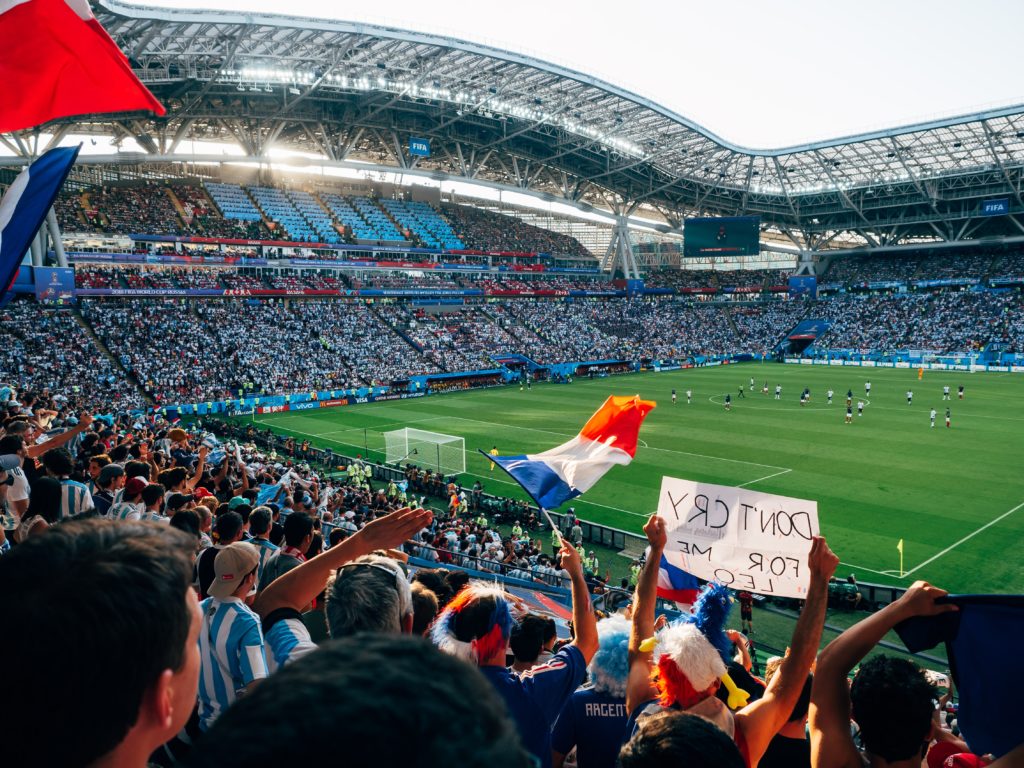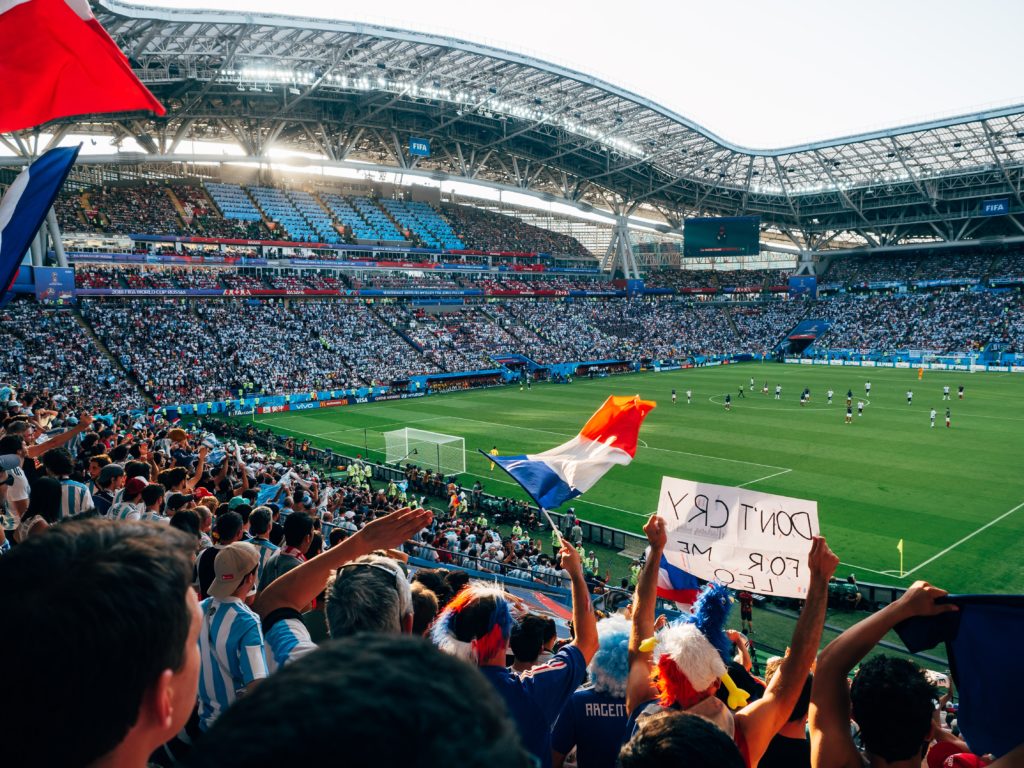
In the wake of the World Cup, we take a look at the menswear market to understand the impact of the games on fashion retail.
Whilst it’s inherent that team jerseys will be top sellers during the month of matches, 2018’s quadrennial ritual sent shockwaves further than the pitch. Adidas’ nostalgic kits left strips selling out worldwide for aesthetic reasons as well as patriotism and Nike’s Nigeria kit was pre-ordered 3 million times; reselling across a multitude of global sites. In the UK, the traditional waistcoat witnessed a catalysed resurgence, as Gareth Southgate became an unexpected style icon.
Collaborations
Football and fashion collaborations are by far not a new thing, given the idolisation and magnitude of the sport. But whilst we were expectedly inundated with collaborations between sports brands and players this year, fast-fashion retailers also came to play. A capsule BoohooMan collection by Dele Alli, England’s millennial midfielder showed that football styles resonates further than a home and away kit, as WGSN Instock data shows that 38.5% of the streetwear inspired collection went out of stock since launching in May. Through this collaboration, Boohoo were able to capitalise on influencer marketing (by reacting to the values of their core customer and aligning product accordingly) whilst retaining their own identity.
Tailor-made
The recent rippling activity from the World Cup on the UK menswear market is demonstrative of our Winning Strategies for Menswear in 2018.
We’ve seen a resurgence in tailoring throughout menswear with hybrid styling dominating trends as the market as a whole begins to experiment more. The evolution of the Waistcoat Wednesday movement (thanks to Gareth Southgate, and his new-found heroism) is perfectly aligned, and a more sartorial approach to men’s styling offers more susceptibility to the mass market.
Experiential statements
But it is the continuous rise of experiential priorities that has allowed the World Cup to leave a boot-print on fashion retail, where the landscape struggles to protest against the socio-economic shift of experience over product. The World Cup offered an amalgamation of the two, and the infiltration and dependency of social media, across both the industry and the sport only further adds fuel for success. As social media drives experience desire and status symbols, it is fitting that brands from Burberry to Boohoo have tapped into football culture, referencing sports teams and events as a means to tap into creating a lifestyle brand that captures a sense of community and nostalgia.
Find out more about WGSN Analytics Division, helping fashion businesses optimise trading in a digital-first competitive landscape by combining data analytics and specialist fashion insight.
Know what’s next. Become a WGSN member today to benefit from our daily trend intelligence, retail analytics, consumer insights and bespoke consultancy services.

